22.08.2022 | Published by bit.bio
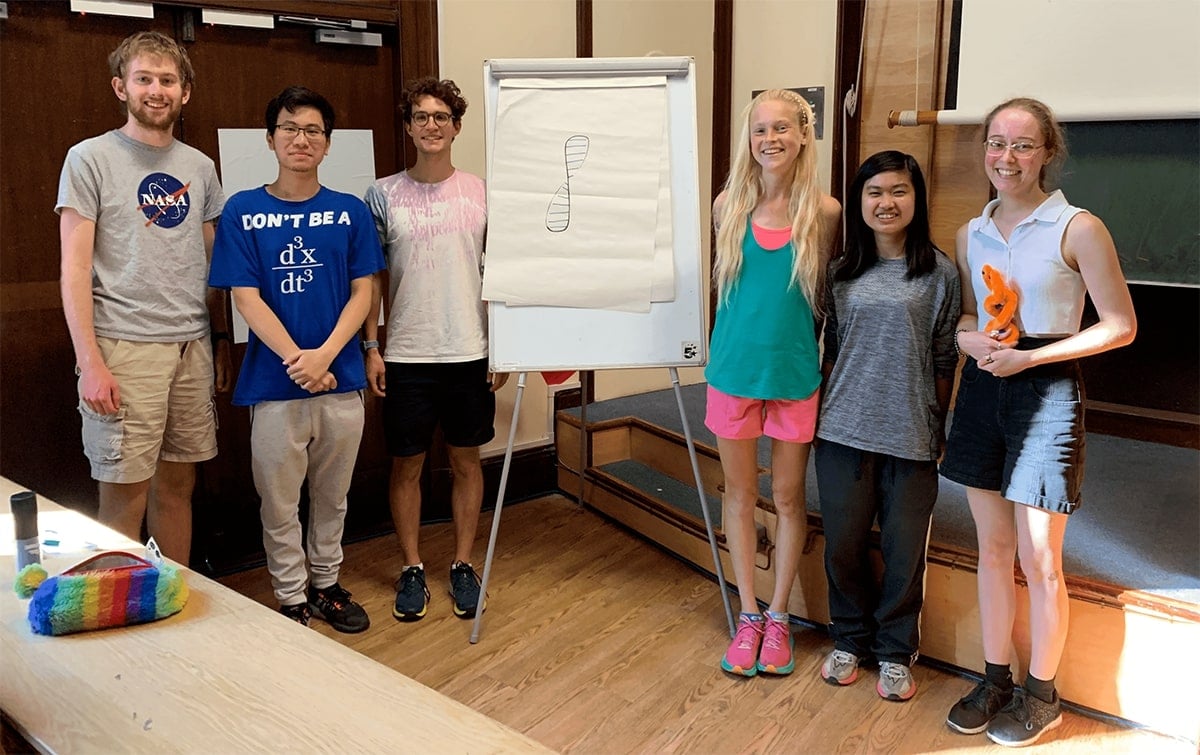
At the end of October, the city of Paris will play host to the next generation of global synthetic biology (synbio) talent as it hosts the iGEM (International Genetically Engineered Machine) Jamboree. Initially started as a study course by MIT (Massachusetts Institute of Technology) in 2003, iGEM is now a global synbio competition which has had over 70,000 participants from 46 countries.
This year, bit.bio is supporting the iGEM team from University of Cambridge, formed from members of the Cambridge University Synthetic Biology Society (CUSBS) and they visited our offices last week to tell us about their project.
Watch the video below to meet the team and read on to find out more about their iGEM project
They said:
"We’re going to take an integral feedback control circuit, similar to the one implemented by Aoki et. al. We will use a fairly similar system architecture, but switch out parts to try and improve the activity of the controller. We’ll work first in E. coli, but hopefully then also work in yeast to demonstrate that our controllers can work well in eukaryotes too. If this all goes well, we may also attempt to build slightly different controller architectures, still based off of integral control, but perhaps using repression instead of activation, for example.
"Once we’ve got controllers working, we’ll then move on to implementing them in useful systems. Things we’re thinking about at the moment are: bioproduction using continuous culture where the products may be toxic at high concentrations – so this system will prevent overproduction and cell death; or metabolic control of pathways where one enzyme needs to be carefully controlled to avoid being a bottleneck in the pathway, but may produce a toxic intermediate that can’t be used fast enough if overproducing; essentially we believe this is useful for any case where an optimum value of some gene activity is desirable. This is often in cases where products may be toxic, and will be probably be more relevant for production methods like continuous culture where you don’t want to kill off all of your cells.
"We’ll also be doing a lot of modelling of these systems throughout the project of course, and as this is an iGEM project, there will also be a significant component of finding companies, academics, and anyone else this could be useful to, speaking to them and understanding what benefits a system like this could have in their work."
The team will present their work at the end of October at the Giant Jamboree in Paris, which brings together researchers, industry, investors, startups, and policy makers to witness the future and celebrate the accomplishments of the iGEM teams.
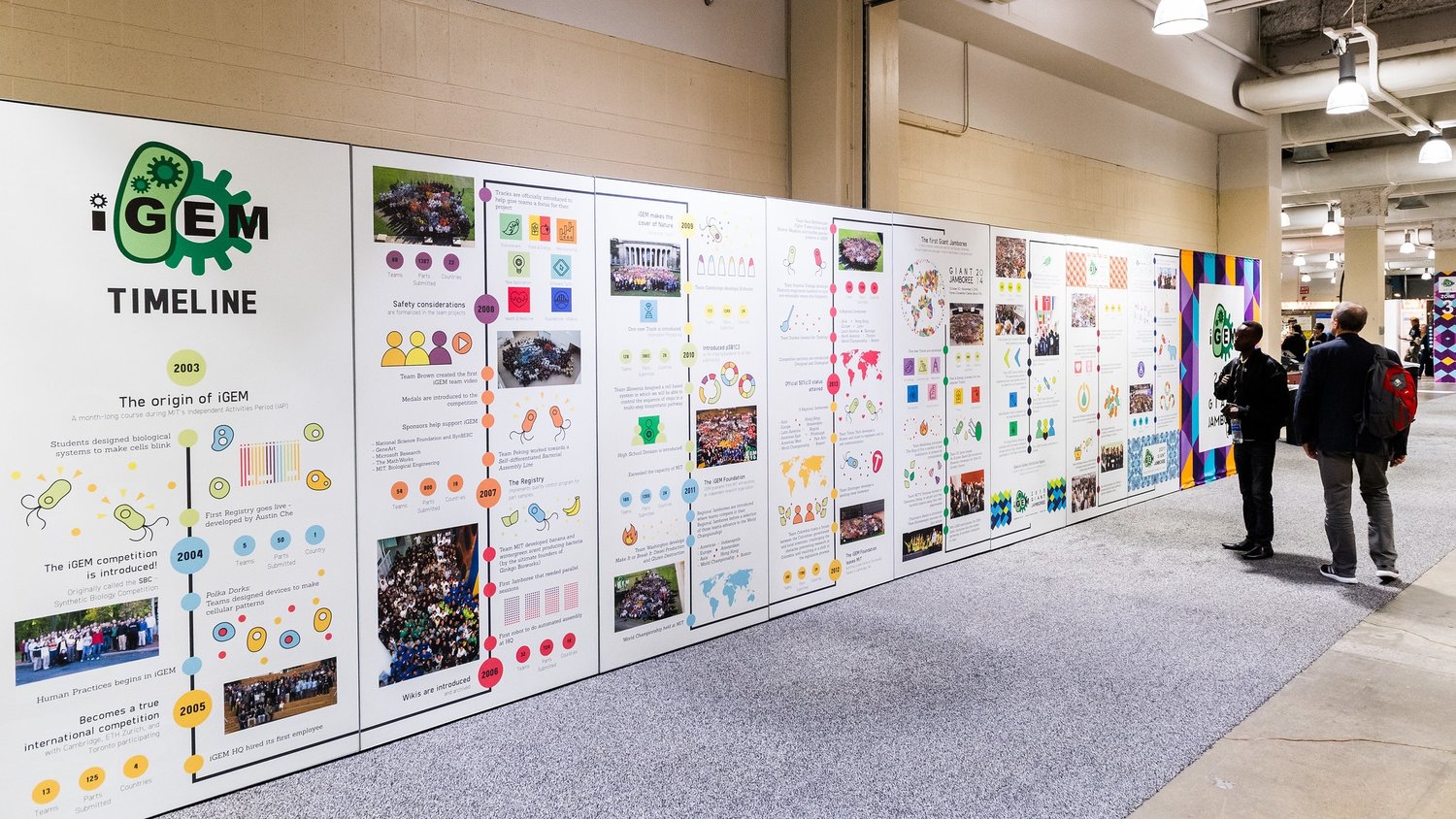 iGEM timeline at the 2018 Giant Jamboree
iGEM timeline at the 2018 Giant Jamboree
Meet the team
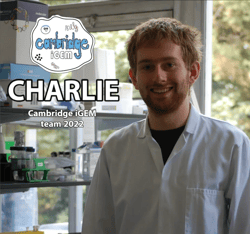 Charles Anderton - 2nd year plant scientist at Queens’ College. I’m really interested in the whole breadth of biology, from molecular fields like synthetic biology, to ecology. I’m really interested in synbio and iGEM because of the inherent breadth of application of the field - I really like how synbio approaches are being used to solve everything from environmental challenges like bioremediation, to challenges with drug production in the pharmaceutical industry. I’m really excited to get involved in the field and iGEM to explore more of what’s possible.
Charles Anderton - 2nd year plant scientist at Queens’ College. I’m really interested in the whole breadth of biology, from molecular fields like synthetic biology, to ecology. I’m really interested in synbio and iGEM because of the inherent breadth of application of the field - I really like how synbio approaches are being used to solve everything from environmental challenges like bioremediation, to challenges with drug production in the pharmaceutical industry. I’m really excited to get involved in the field and iGEM to explore more of what’s possible.
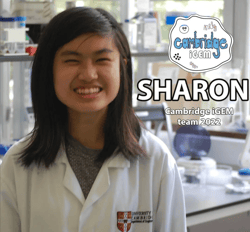 Sharon Ho -3rd year medical student intercalating in Bioengineering at Gonville and Caius College, University of Cambridge. I am joining iGEM because iGEM is a global competition that provide us with wonderful education opportunities that involves finding sponsors, organising the team, planning experiments, making outreach materials for Education, etc. Besides the soft skills, I am also able to explore more on the field of synthetic biology. I enjoy working with a multidisciplinary team where we can all learn from each other.
Sharon Ho -3rd year medical student intercalating in Bioengineering at Gonville and Caius College, University of Cambridge. I am joining iGEM because iGEM is a global competition that provide us with wonderful education opportunities that involves finding sponsors, organising the team, planning experiments, making outreach materials for Education, etc. Besides the soft skills, I am also able to explore more on the field of synthetic biology. I enjoy working with a multidisciplinary team where we can all learn from each other.
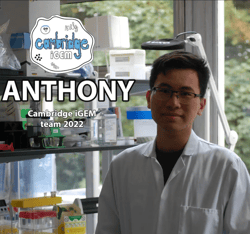 Anthony Phung -1st year Natural Scientist at St. Catharine's College, University of Cambridge. By origin and at heart, I am a biologist; but I also explore other physical disciplines in my degree and hope to undertake Chemistry and Mathematics next year. I have loved science competitions ever since high school Olympiads, and I want to retain that passion throughout my undergraduates. iGEM came to me as an excellent opportunity to both showcase my strengths in SynBio and meet new formidable rivals through competitive sportsmanship.
Anthony Phung -1st year Natural Scientist at St. Catharine's College, University of Cambridge. By origin and at heart, I am a biologist; but I also explore other physical disciplines in my degree and hope to undertake Chemistry and Mathematics next year. I have loved science competitions ever since high school Olympiads, and I want to retain that passion throughout my undergraduates. iGEM came to me as an excellent opportunity to both showcase my strengths in SynBio and meet new formidable rivals through competitive sportsmanship.
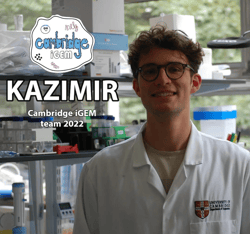 Kazimir Uzwyshyn-Jones - 4 year Biochemists at Queens’ College. My master’s thesis using single cell microscopy and Hi-C to understand 3D genome organisation in mESC. I am very excited to be partaking in the iGEM competition as it will be a fantastic opportunity to learn about synthetic biology and apply engineering principles to biology. In many respects iGEM is similar to establishing a start-up and the soft skills required are very important.
Kazimir Uzwyshyn-Jones - 4 year Biochemists at Queens’ College. My master’s thesis using single cell microscopy and Hi-C to understand 3D genome organisation in mESC. I am very excited to be partaking in the iGEM competition as it will be a fantastic opportunity to learn about synthetic biology and apply engineering principles to biology. In many respects iGEM is similar to establishing a start-up and the soft skills required are very important.
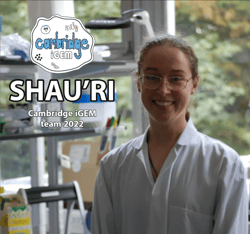 Shau'ri Wiggins - 1st year Natural Scientist at Peterhouse focusing on Chemistry and Biology, specifically interested in amino acids and all the small things that make up life on Earth. I joined iGEM after learning about synthetic biology and its ability to engineer life to revolutionise therapeutics, solve environmental issues and tackle world issues. iGEM is such a great opportunity to actually design our own project, learn how it can be implemented and get involved in education and public outreach in this field.
Shau'ri Wiggins - 1st year Natural Scientist at Peterhouse focusing on Chemistry and Biology, specifically interested in amino acids and all the small things that make up life on Earth. I joined iGEM after learning about synthetic biology and its ability to engineer life to revolutionise therapeutics, solve environmental issues and tackle world issues. iGEM is such a great opportunity to actually design our own project, learn how it can be implemented and get involved in education and public outreach in this field.
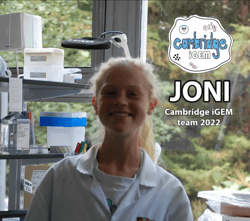 Joni Wildman -4th year physicist at Murray Edwards College with a passion for biophysics and biological applications of physics (of which there are many in iGEM!). I love how iGEM allows me to combine my passion for nature, the environment and biology with all the maths and physical science that i have learnt in my undergraduate degree. I hope to pursue a career in biophysics/ synthetic biology as, in addition to really exciting me, i think that these fields of research will be crucial to tackling some of the world’s biggest problems such as food security and climate change.
Joni Wildman -4th year physicist at Murray Edwards College with a passion for biophysics and biological applications of physics (of which there are many in iGEM!). I love how iGEM allows me to combine my passion for nature, the environment and biology with all the maths and physical science that i have learnt in my undergraduate degree. I hope to pursue a career in biophysics/ synthetic biology as, in addition to really exciting me, i think that these fields of research will be crucial to tackling some of the world’s biggest problems such as food security and climate change.
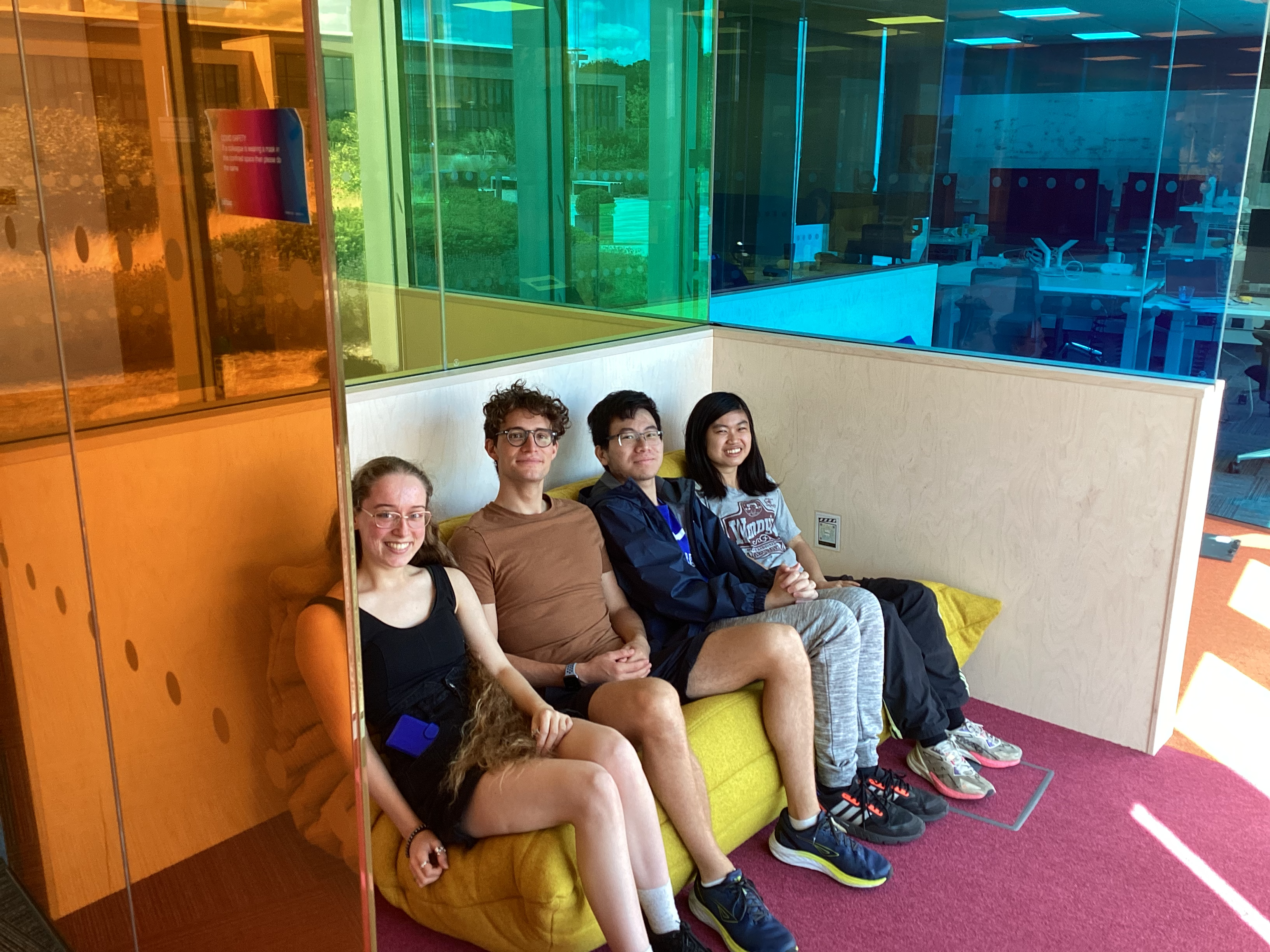 Members of the iGEM team in the bit.bio office space.
Members of the iGEM team in the bit.bio office space.
To see what the team is up to please visit their social media channels:
